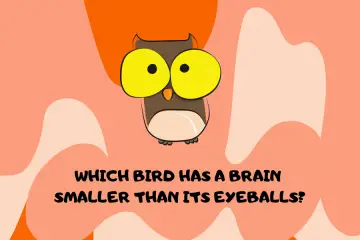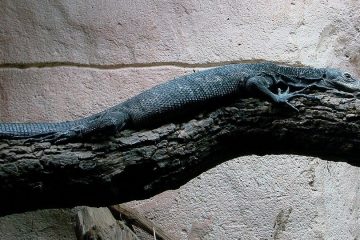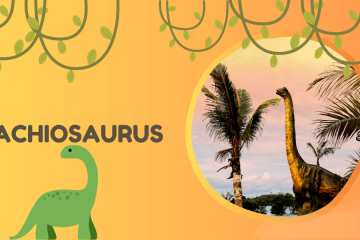Yes, alligators do have tongues. Their tongues run along the full length of their snouts. This means that their tongues are nearly the same length as their long snouts. Adult alligators have tongues that are really long – usually up to 2 feet or 60cm long. Their tongues are primarily made of muscle and fat.
At the back of their tongues is a special piece of flesh known as a Palatal Valve. The valve plays two special roles. One, it acts as a seal as it helps prevent unwanted water or air from passing through their throats when fully submerged into their lungs and stomach.
The palatal valve also plays a crucial role when the alligator is hunting and catching prey while in the water. By closing the seal on its throat, the reptile is able to open its mouth fully when totally submerged, thus easily snatching its prey.
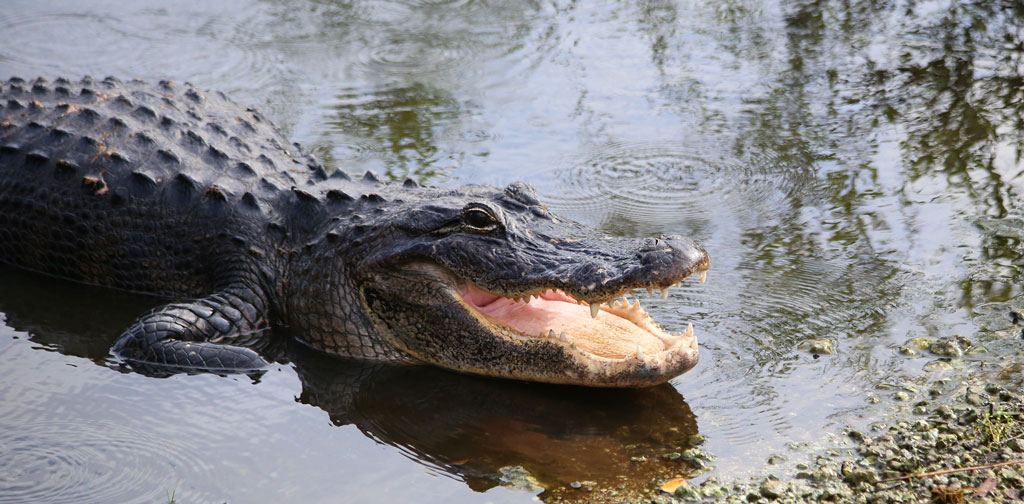
Another common question most people often ask is:
Do alligators stick their tongues out?
Yes, unlike crocodiles, alligators can actually stick their tongues out. Since both reptiles are often mistaken due to their notable similarities, a lot of people often assume that just like crocodiles, alligators are incapable of sticking their tongues out.
Do Crocodiles Have Tongues?
Crocodiles have tongues. However, unlike their alligator cousins, their tongues are firmly embedded at the bottom of their mouths by a strong membrane. The membrane holds the tongue in place, which consequently limits movement. This does prevent the tongue from sticking out.
As you already know, alligators and crocodiles bare a huge similarity in their physical appearance. However, their tongues are among the few features that differentiate these two reptiles. An alligator can stick out its tongue but a crocodile cannot.
Something else worth noting is that unlike alligators and other animal species, the tongue of a crocodile does not play any part in feeding. Rather, they use their immobile tongues for functions like:
- Sealing their airways to keep water out when underwater
- Salt regulation
- Body heat regulation
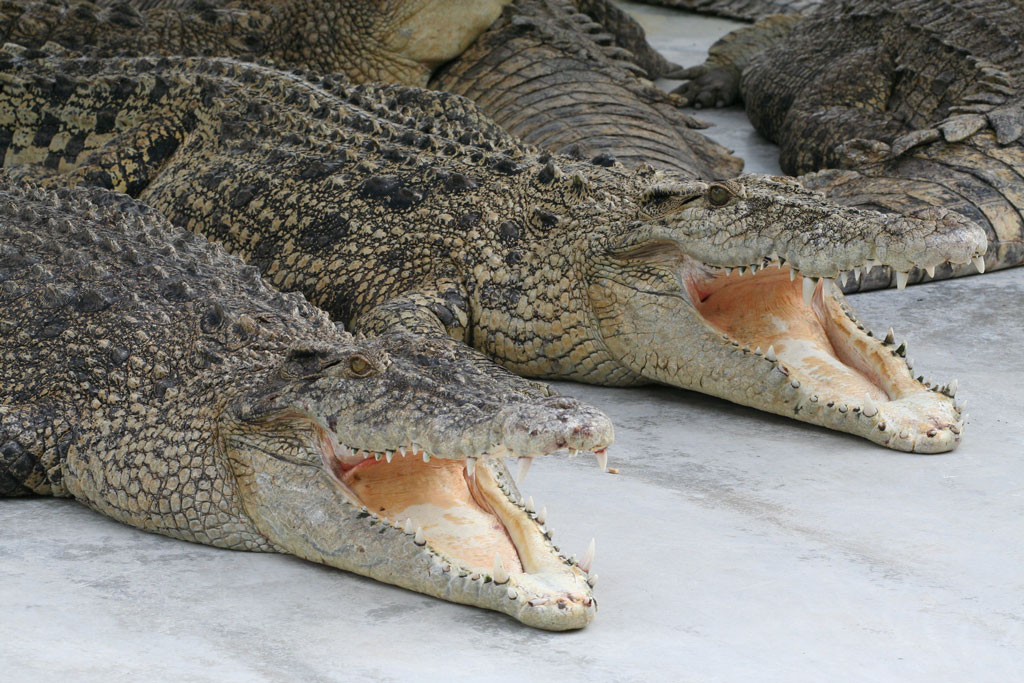
Let’s have an in-depth discussion about each one of these functionalities of the croc tongue:
Keeping Water Out of Airways When Fully Submerged
Although crocodiles are water animals, unlike fish, they do not have gills. Fish are capable of breathing while underwater without having to come up for air regularly. This is because their gills are able to absorb the oxygen in the water and expel carbon dioxide. They function pretty much like lungs in humans and other animals.
Since crocodiles lack gills, they have to come up for air and while in water, they need to prevent the water from entering their airways or lungs and to make this happen, they use their immobile tongues to keep the throats closed.
Salt Regulation
Unlike alligators which primarily live in freshwater habitats, crocodiles on the other hand can survive in both fresh and saltwater habitats.
For this reason, crocodiles have salt glands that are located at the back of their tongues. Their main function is to secrete salt, thus allowing them to survive in water sources with high salt concentration.
This is actually another major difference between alligators and crocodiles.
Body Temperature Regulation
Crocodiles are regarded as “cold-blooded” animals due to their inability to maintain a constant body temperature by physiological means, unlike birds and mammals.
Studies indicate that crocodiles generally prefer a body temperature that ranges between 30-33 degrees Celsius and will thus move back and forth between warm and cool parts of their environment in order to achieve these temperatures.
So what role do their tongues play in body temperature regulation?
When basking in the sun or floating in water under the sun, their mouths are often wide open. The reptiles often align their bodies in such a way that the body receives more heat compared to their heads. It’s imperative that their brains do not become overheated and for this reason, opening their mouths allows their brains to cool down through evaporative cooling by sweating through their tongues.
However, crocodiles basking in the sun with their mouths open isn’t always to cool their brain under the hot sun. It’s actually a behavioral pattern since the same behavior is often noticed when it’s lying on land in the rain or during the night.
How Do Crocodiles Swallow their Food with an Immobile Tongue?
You’re probably wondering: If the crocodile does not use its tongue to feed, then how does it swallow its food? How does a crocodile swallow its food underwater?
Well, as you know, these powerful carnivores have massive jaws and sharp teeth that allow them to clamp down on their prey, crush it, and swallow it whole. Usually, the crocodile juggles its food around until it’s in a perfect position. It then tosses its head back to allow the food to slide smoothly down its throat.
With an immobile tongue, it would be impossible to chew its food or break it into smaller pieces like other animals. That’s why it swallows its prey whole. So its tongue is pretty much useless when it comes to eating.
To help with digestion, crocodiles swallow small stones that assist in grinding food inside their stomachs. And because they have a much slower metabolism compared to most animals, crocodiles can actually go for months without food.
Do Crocodiles Have Taste Buds?
Yes, crocodiles have taste buds. They have these special organs in their snouts that give them an excellent sense of taste and smell.
What Do Alligators and Crocodiles Use their Tongue For?
Helps Regulate the heat:
Alligators and crocodiles, like most reptiles, release heat by panting. As your body heats up, your skin produces sweat. Your tongue can help regulate the temperature of this sweat so you don’t overheat.
keeping Water Out of the Airway:
A crocodile’s tongue is an elastic stalk that keeps water outside the airway. That keeps the airway clear, keeping food down easier, and cut down on water getting in, which can choke you.
Helps swallow:
When a crocodile cannot swallow its prey whole it will sometimes poke its cheeks forwards with its tongue, helping it to make a seal at the back of the mouth. Other times, it may also use its tongue to grip prey by the neck or tail to further subdue it for swallowing.
To Regulate Salt content in their body:
When an Alligator is deprived of salt for a period of time, it will begin to produce a substance called renin. Renin circulates in the bloodstream and begins to break down the blood cells.
Do Alligators and Crocodiles have tongues? Conclusion
You’ve now learnt that these huge reptiles actually have tongues despite what some people might believe. However, it’s quite interesting to learn that crocs are incapable of sticking their tongues out, not to mention that their tongues play no role in feeding.
https://animals.mom.com/can-crocodile-stick-out-its-tongue-10015.html
https://www.theguardian.com/lifeandstyle/2014/mar/22/ask-grown-up-how-long-alligators-tongue

Lydia King is a huge animal lover and has always been fascinated with learning about the animal kingdom. She enjoys writing about anything animal related from scientific information about rare species to animal references in pop culture.
